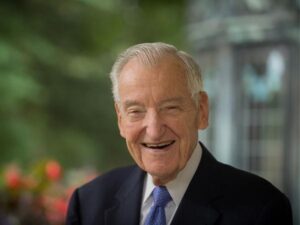Racial and ethnic inequities are pervasive in clinical research—from the systemic factors that deter underrepresented populations from pursuing careers in science and medicine, to the discrimination, lack of support, and other hardships faced by those who do enter the biomedical profession.
The Robert H. Lurie Comprehensive Cancer Center of Northwestern University has announced three senior leadership appointments.
Every cancer center seeking to obtain (or keep) an NCI designation will soon have to present a plan for increasing the diversity of their faculty and workforce.
DEI Network founders: Let’s work together to increase diversity across all cancer centers in America
Christopher Li and Wendy Law, both of Fred Hutchinson Cancer Research Center, have a message for leaders of DEI programs in oncology.
The Bristol Myers Squibb Foundation, together with its partners, National Medical Fellowships and the American Association for Cancer Research, selected 52 physicians for its Diversity in Clinical Trials Career Development Program. These early-stage investigators are the first of 250 community-oriented clinical trialists who will be trained through the program by 2027.
Emergent public-private partnerships (PPPs) have risen to the occasion to streamline and coordinate severe acute respiratory syndrome coronavirus 2 (SARS-CoV-2) vaccines. With these monumental efforts have come important public discussions about equitable access and representation in clinical trials (CTs).
FDA watchers and clinical trialists in oncology may want to pay close attention to the agency’s latest plans to increase representation of traditionally marginalized populations in drug development.
There’s a cultural perception in drug development that enrolling a diverse, heterogeneous patient cohort can be “risky” for detecting drug effects—a perception that needs to go away, said Lola Fashoyin-Aje, associate director of the Science & Policy Program to Address Disparities at the FDA’s Oncology Center of Excellence and a deputy division director in the agency’s Office of Oncologic Diseases.
Drug manufacturers and researchers have a moral obligation to design clinical trials that adequately represent the target population for the investigational agent—and these medical products need to be safe and effective for everyone, leading clinical trial experts in oncology say.
Few people can say they have contributed more to our field than Dr. Walter Lawrence, Jr., and we are so deeply saddened by his passing Nov. 9 at age 96.













